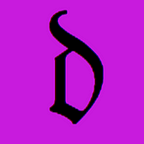The Empire Strikes the English language
The delightful but vaguely problematic glossary of colonial language that is Hobson-Jobson
“Words of Indian origin have been insinuating themselves into English ever since the end of the reign of Elizabeth and the beginning of that of King James,” begins the lexicon Hobson Jobson: A Glossary of Colloquial Anglo-Indian words and phrases, And Of Kindred Terms, Etymological, Historical, Geographical and Discursive, “when such terms as calico, chintz, and gingham had already effected a lodgement in English warehouses and shops, and were lying in wait for entrance into English literature. Such outlandish guests grew more frequent 120 years ago, when, soon after the middle of last century, the numbers of Englishmen in Indian services, civil and military, expanded with the great acquisition of dominion then made by the Company; and we meet them in vastly great abundance now.”
It was suggested that the book be called “A Book, by a Chap”. However, Colonel Yule and Mr. Burnell, whose idea the lexicon had been, went for Hobson-Jobson. A product of the Victorian enthusiasm for lexigraphy, map-making for the geographic origination of language and words, Hobson-Jobson was first put together in 1886. It almost predates the epic ten-volume New English Dictionary that was published between 1884 and 1928, and is now known as the Oxford English Dictionary (OED). Henry Yule was a retired Bengal Engineer turned historic geographer and scholar, who settled in Palermo, Sicily…
